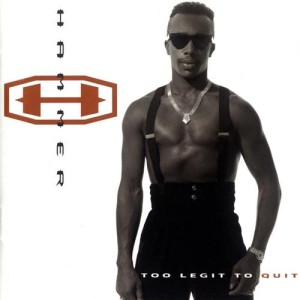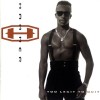 Let’s get one thing out of the way: you need to learn to play your instrument before you can start learning to play jazz. Trying to improvise over an Eb-7 chord when you are still trying to remember whether it’s a D-flat or D-natural is challenging, but it’s impossible if you are at all unsure of the fingering for a high Eb! There are many foundational elements that every musician must master regardless of their genre of specialty, including instrument-specific technique, music theory, and stylistic fluency. But how to build this foundation is a hotly contested topic in the world of jazz education.
Let’s get one thing out of the way: you need to learn to play your instrument before you can start learning to play jazz. Trying to improvise over an Eb-7 chord when you are still trying to remember whether it’s a D-flat or D-natural is challenging, but it’s impossible if you are at all unsure of the fingering for a high Eb! There are many foundational elements that every musician must master regardless of their genre of specialty, including instrument-specific technique, music theory, and stylistic fluency. But how to build this foundation is a hotly contested topic in the world of jazz education.
My classical journey:
I studied music at Northwestern University (class of ’07), where classical reigned supreme. I was fortunate enough to be afforded the opportunity to study as a part of Dr. Fred Hemke’s studio, where I took 2 years of classical sax rep, saxophone quartet, and technique lessons, all while simultaneously focusing on my Jazz Studies major. Through his experience, I gained enormous respect for the dedication, ungodly technique, and general mastery of the saxophone championed by my classical peers. Although everybody knew I was one of only a small handful of jazz guys, they all treated me as a saxophone equal, and I think we all learned a lot from each other.
However, the experience wasn’t all positive. I generally detested the limited and excessively “modern” repertoire, and I was often depressed by their unsoken mantra: higher, louder, faster, more difficult = better. A lot of effort was wasted mentally shifting between my jazz and classical hats, and in the end it’s possible that my lack of focus on jazz stunted the musical growth that should have ensued from 4-6 daily hours of music.
So, is classical study the most effective foundation for the aspiring jazz musician?
Honestly, I’m undecided. But here are a few key points of technique. Mastery of each is pivotal to any jazz saxophonist’s success. I’ll offer my thoughts on the pro’s and con’s of studying classical saxophone in building your jazz saxophone foundation:
1. Finger Technique:
Pro: You’ll force your fingers to contort in baffling ways in order to execute some of the rep. Also, most classical studios will make you work up your scales and scalar intervals at very quick tempos, which is invaluable while improvising.
Con: Your fingers might be too fast and precise?
Verdict #1: Study Classical!
2. Tonguing
Pro: Speed. You will be forced to tongue very quickly, and your finger-tongue synchronization will improve.
Con: Style. Jazz tonguing is a whole different animal. Read my previous post on tonguing for jazz saxophone for more details.
Verdict #2: Neutral
3. Embouchure
Pro: If you are properly schooled, you will learn to play with minimal pressure. Teachers from the Joe Allard school will be genre neutral and give you a proper saxophone embouchure.
Con: I find the classical and jazz embouchures to be entirely different. Classical players have a much steeper mouthpiece angle (neckstrap wayyy up), and they typically play with more pressure that is evenly distributed around the mouthpiece. In fact, many classical players use paper or floral tape to cover their bottom lip (mostly due the the extreme high-range demands of the rep). Additionally, the classical embouchure is fixed and very similar to how one might approach the clarinet, while jazz subtone requires a far more flexible embouchure (lower jaw).
Verdict #3: Avoid Classical!
4. Breathing
Pro: Lengthy passages with very little room for air will force you to be able to take quick, full breaths and deal with air backup issues.
Con: None.
Verdict #4: Study Classical!
5. Dynamic Control & Air
Pro: You will have to play very quietly across the range of the horn with good intonation.
Con: Many jazz players don’t put a ton of air into the horn when playing classical, since they think it sounds more “legit”. In addition, jazz players “voice” a lot of their notes in order to produce the desired effect, while that can be frowned upon in some classical circles.
Verdict #5: Neutral
6. Intonation
Pro: Playing solo or in a group, attention to intonation is magnified in the classical world. You will learn to slightly lower the third to make a major chord sound in tune, and you will develop alternate fingerings for notes to adjust for imperfections in the saxophone’s natural intonation tendencies.
Con: You may become too obsessed with playing in tune, to the possible detriment of your creative juices.
Verdict #6: Study Classical!
7. Altissimo
Pro: Think Chris Potter, Seamus Blake, and Mark Turner have serious altissimo chops? Check out some classical guys ripping off 16th note major fifths at 160bpm, all the way up to double high G, and you’ll quickly learn that jazz musicians have a long way to go in mastering the altissimo range relative to their classical peers. I wish I studied this more intensely while in the studio.
Con: You won’t develop that cool growling effect that a lot of jazz guys like to use “up there”.
Verdict #7: Study Classical!
8. Extended Technique
Pro: Slap tonguing, circular breathing, multiphonics, and double tonguing are all par for the course in the classical world.
Con: You are going to spend a lot of time to master any of these, and in jazz they usually come off as gimmicky. If you’re into more of the free jazz scene, I’d recommend classical study, since these extended techniques can come in handy.
Verdict #8: Neutral
9. Vibrato & Style
Pro: I personally think that everybody should be able to play a beautiful line with some amount of classical sensibility.
Con: Jazz vibrato is entirely different than classical, coming more from the throat than the jaw alone. In addition, stylistically you will not see any jazz gains from learning to play stylistically correct classical passages, since jazz is a whole different animal. Most classical saxophone repertoire is not “classical” at all, and you’d be better served to play some cello suites or oboe/flute rep if you want to work on your musicality.
Verdict #9: Avoid Classical!
Conclusion
The choice is yours. My opinion is that some amount of classical study is incredibly helpful, but too much classical focus will put you on the express train to square town. But that’s just me. I’m very curious to hear what kind of experience others have had, so please leave a comment and start the discussion!


Hey Mike,
I always love reading these posts, and I’ve kept up with each installment. This one inspired me to respond. I haven’t studied “classical saxophone repertoire” in a few years, but did it intensely in high school and college, like most people do. I think the saddest part about “classical saxophone” is that it’s so detached from the history of other “classical music” (which admittedly, is also a broad and unspecific term). I agree that studying the repertoire written for modern saxophone by contemporary composers may not always feed into the development of a young jazz saxophone, but I think that polarizing jazz and classical schools has the potential to make young students avoid “classical” music all together. In the same way that hearing a legit player playing 16th note scales in 5ths can add some humility to practicing the altissimo, spending 5 minutes listening to Debussy or Bartok adds a sense of humility to harmony and rhythm. Jazz is musically always going to be a little less advanced musically than classical music, but I think it provides us with a sense of community and cultural appreciation that classical music isn’t as quick to provide. I think that even if you don’t spend thousands of hours practicing to balance your multiphonics from ppp to fff while you slap tongue a diminished scale and throat sing a pop song, I think it’s good to listen to someone else do it (almost sounds like a Colin Stetson song, haha…). I think it’s good to check out every kind of music you can get your hands on, and at least listen to it. So, in my humble opinion: Study Classical Music! Study Jazz Music! Study Bossa Nova! Learn the Tango! Study Guaguaco! Learn the Djembe! … you see what I mean.
Again, thanks for posting these articles! I’ve learned a lot from reading them and I am continually inspired by your hard work. I hope we get to work together soon, but I’m sure we will see each other around town before that.
All the best,
Mark Hiebert
Mark – thanks for the thoughtful comments! Generally speaking, I couldn’t agree with you more. More varied musical exposure is always a plus for development, so thanks for adding your perspective. And yes, hope to see you around the Chicago scene soon!